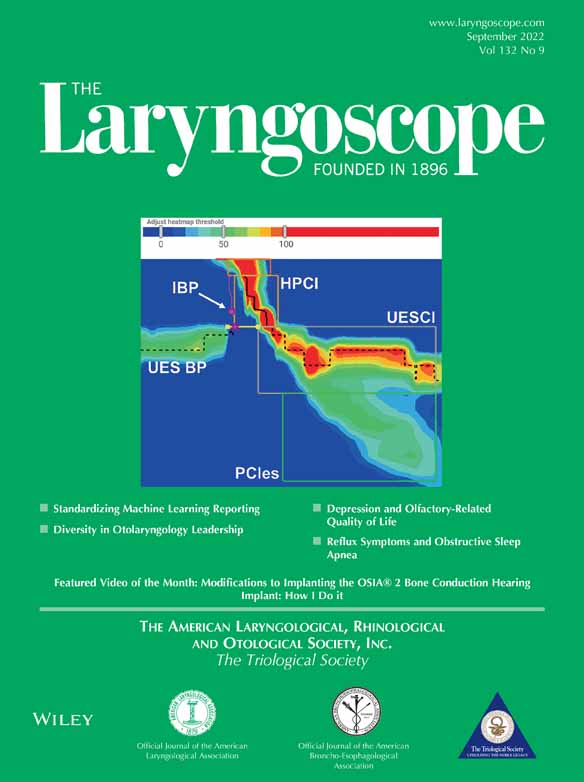Noninvasive Respiratory Support as an Alternative to Tracheostomy in Severe Laryngomalacia
Editor's Note: This Manuscript was accepted for publication on October 19, 2021.
The authors have no funding, financial relationships, or conflicts of interest to disclose.
Abstract
Objectives/Hypothesis
To analyze the role of noninvasive respiratory support (NRS) as an alternative to tracheostomy in the management of severe laryngomalacia.
Study Design
We conducted a monocentric retrospective study in a tertiary pediatric care center.
Methods
All children under the age of 3 years with severe laryngomalacia, treated between January 2014 and December 2019, were included. Patient demographics, medical history, nutrition, surgery, NRS, and outcome were reviewed. Predictors for NRS were analyzed.
Results
One hundred and eighty-eight patients were included. Mean age was 4 ± 5 months and mean weight was 4,925 ± 1,933 g. An endoscopic bilateral supraglottoplasty was performed in 183 (97%) patients and successful in 159 (87%). NRS was initiated in 29 (15%) patients at a mean age of 3 ± 2 months (1–11 months): 15 (52%) patients were treated with NRS after surgical failure, 9 (31%) were treated with NRS initiated prior to surgery because of abnormal overnight gas exchange, and 5 (17%) were treated exclusively with NRS due to comorbidities contraindicating an endoscopic procedure. NRS was successfully performed in all patients with a mean duration of 6 ± 11 months. No patient required a tracheostomy. Univariate analysis identified the following predictors of NRS: neonatal respiratory distress (P = .003), neurological comorbidity (P < .001), associated laryngeal abnormality (P < .001), cardiac surgery (P = .039), surgical endoscopic revision (P = .007), and nutritional support (P < .001).
Conclusion
NRS is a safe procedure, which may avoid a tracheostomy in severe laryngomalacia, in particular, in case of endoscopic surgery failure, respiratory failure before surgery, and/or severe co-morbidity.
Level of Evidence
3 Laryngoscope, 132:1861–1868, 2022




